June 28 stands as one of history’s most eventful days, witnessing the rise and fall of empires, groundbreaking discoveries, and moments that shaped our modern world across centuries of human achievement.

Politics and Government Events on June 28
1914 – Archduke Franz Ferdinand Assassination Sparks World War I
Archduke Franz Ferdinand of Austria and his wife Sophie met their tragic fate in Sarajevo on this pivotal day. The assassination triggered the July Crisis that would engulf Europe in unprecedented warfare.
The shots fired by Gavrilo Princip changed the course of human history forever. This single act of violence provided the spark that ignited the powder keg of European tensions into the Great War.
1919 – Treaty of Versailles Signed
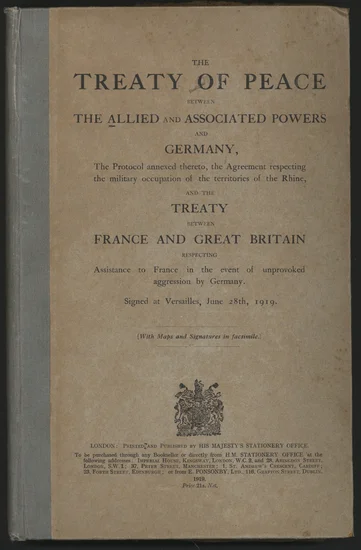
The Treaty of Versailles officially ended the state of war between Germany and the Allied powers. European leaders gathered to reshape the continent’s political landscape after four years of devastating conflict.
The treaty’s harsh terms would later contribute to economic instability and political upheaval in Germany. This document fundamentally altered the balance of power in Europe for decades to come.
1948 – Yugoslavia Expelled from Cominform
The Tito-Stalin Split reached its climax when Yugoslavia was expelled from the Communist Information Bureau. This dramatic break marked the first major crack in the seemingly monolithic communist bloc.
Josip Broz Tito’s independent stance challenged Stalin’s authority over international communism. The split demonstrated that national communist parties could successfully resist Soviet domination.
1956 – Polish Workers Begin Poznań Protests
Workers from the HCP factory in Poznań took to the streets in one of the first major uprisings against communist rule. Their courage sparked widespread protests that challenged the communist government’s authority.
The demonstrations marked a turning point in Polish resistance to Soviet-imposed communism. This grassroots movement inspired similar uprisings across Eastern Europe in the following years.
2001 – Slobodan Milošević Extradited to The Hague
Former Yugoslav president Slobodan Milošević was extradited to stand trial at the International Criminal Tribunal. His transfer marked a historic moment in international justice and accountability.
The extradition demonstrated that even former heads of state could face prosecution for war crimes. This precedent strengthened the principle of international criminal law enforcement.
2004 – Iraq Sovereignty Transferred
The Coalition Provisional Authority formally transferred sovereign power to Iraq’s interim government. This transition marked the official end of direct U.S.-led administration of the country.
The handover occurred ahead of schedule in a ceremony designed to prevent insurgent attacks. Despite the transfer, coalition forces remained to provide security and support.
2009 – Honduran Constitutional Crisis Begins
President Manuel Zelaya was ousted in a military coup following his controversial referendum proposal. The crisis divided the international community and plunged Honduras into political turmoil.
The coup occurred after Zelaya attempted to hold a referendum on constitutional reform. International observers widely condemned the military’s actions as an assault on democratic governance.
Military and Naval History on June 28
1917 – Greece Joins Allied Powers
Greece officially entered World War I on the side of the Allied powers after years of political uncertainty. King Constantine’s abdication paved the way for Eleftherios Venizelos to lead the nation into war.
The Greek entry provided the Allies with additional naval bases and strategic positions in the Eastern Mediterranean. Greek forces would contribute significantly to the Salonica Front operations.
1940 – Romania Cedes Territory to Soviet Union
Romania surrendered Bessarabia and Northern Bukovina to the Soviet Union following a Soviet ultimatum. The territorial concession marked another step in Stalin’s expansion of Soviet influence.
The forced cession occurred without military resistance as Romania faced overwhelming Soviet pressure. This territorial loss would later influence Romania’s decision to join the Axis powers.
1942 – Nazi Germany Launches Case Blue
German forces began their strategic summer offensive against the Soviet Union with Operation Case Blue. The campaign aimed to capture vital oil fields in the Caucasus region.
The offensive initially achieved significant territorial gains across southern Russia. However, the operation would ultimately culminate in the disastrous Battle of Stalingrad.
1950 – Seoul Falls to North Korean Forces
South Korean forces destroyed the Hangang Bridge in a desperate attempt to halt the North Korean advance. The capital city fell later that same day as communist forces swept southward.
The bridge’s destruction trapped thousands of refugees and left the South Korean 5th Division stranded. This chaotic retreat marked one of the darkest moments in the early Korean War.
1987 – Chemical Attack on Sardasht
Iraqi warplanes conducted the first chemical attack specifically targeting a civilian population in military history. The Iranian town of Sardasht suffered devastating casualties from the poison gas bombardment.
The attack violated international laws of warfare and marked an escalation in the Iran-Iraq War. Hundreds of civilians died immediately, while thousands more suffered long-term health effects.
Science and Discovery Milestones on June 28
1911 – Nakhla Meteorite Falls in Egypt

The Nakhla meteorite crashed to Earth in Egypt, becoming the first meteorite to suggest evidence of aqueous processes on Mars. This extraordinary specimen revolutionized our understanding of the Red Planet.
Scientists later discovered microscopic structures within the meteorite that indicated water activity on Mars. The discovery provided crucial evidence for the possibility of ancient Martian life.
1978 – Supreme Court Rules on Affirmative Action
The United States Supreme Court issued its landmark decision in Regents of the University of California v. Bakke. The ruling prohibited racial quotas in college admissions while allowing race as one factor among many.
The decision established important precedents for affirmative action policies in higher education. Justice Lewis Powell’s opinion provided a framework that would influence admissions policies for decades.
2012 – Affordable Care Act Upheld
The Supreme Court upheld the constitutionality of the Affordable Care Act’s individual mandate in a closely watched decision. Chief Justice John Roberts provided the crucial swing vote in the 5-4 ruling.
The decision preserved President Obama’s signature healthcare legislation and expanded medical coverage to millions of Americans. The ruling demonstrated the complex relationship between federal power and individual rights.
Cultural and Arts Events on June 28
1969 – Stonewall Riots Begin

The Stonewall riots erupted in New York City’s Greenwich Village, marking the beginning of the modern Gay Rights Movement. Patrons at the Stonewall Inn fought back against routine police harassment.
The spontaneous uprising continued for several days and galvanized the LGBTQ community nationwide. These events transformed gay rights from a hidden struggle into a visible civil rights movement.
1997 – Tyson Disqualified for Biting Holyfield

Mike Tyson was disqualified in the third round of his heavyweight bout against Evander Holyfield for biting his opponent’s ear. The shocking incident occurred during their highly anticipated rematch.
The bite left a piece of Holyfield’s ear on the canvas and stunned the boxing world. This bizarre ending effectively ended Tyson’s career as a elite heavyweight contender.
1926 – Mercedes-Benz Corporation Formed
Gottlieb Daimler and Karl Benz merged their automotive companies to create the legendary Mercedes-Benz brand. The union combined two pioneering German automotive manufacturers into a single powerhouse.
The merger created one of the world’s most prestigious luxury automobile brands. Mercedes-Benz would go on to define automotive excellence and innovation for nearly a century.
Religious and Social Events on June 28
1964 – Malcolm X Forms Organization of Afro-American Unity
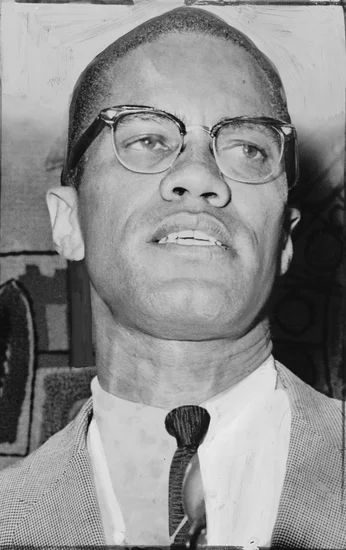
Malcolm X established the Organization of Afro-American Unity to promote human rights and self-determination for African Americans. The organization represented his evolving philosophy after leaving the Nation of Islam.
The new group emphasized international connections between African Americans and liberation movements worldwide. Malcolm X sought to elevate civil rights from a domestic issue to an international human rights concern.
1921 – Yugoslav Vidovdan Constitution Proclaimed

Serbian King Alexander I proclaimed the new constitution for the Kingdom of Serbs, Croats and Slovenes. The document became known as the Vidovdan Constitution after the traditional Serbian holiday.
The constitution established a centralized monarchy that favored Serbian interests over other ethnic groups. This constitutional framework would contribute to ongoing tensions within the multinational kingdom.
1950 – Bodo League Massacre Occurs
South Korean forces executed thousands of suspected communist sympathizers in the Bodo League massacre. The killings occurred as North Korean forces advanced southward during the Korean War.
Between 60,000 and 200,000 people died in this systematic elimination of political prisoners. The massacre remained hidden from public knowledge for decades due to government censorship.
Business and Economic Events on June 28
1902 – Spooner Act Authorizes Panama Canal
The U.S. Congress passed the Spooner Act, authorizing President Theodore Roosevelt to acquire canal rights from Colombia. The legislation provided the legal framework for American control of the Panama Canal project.
The act represented a major shift in American foreign policy toward active intervention in Latin America. Roosevelt’s subsequent actions in Panama would establish the United States as a dominant hemispheric power.
1976 – Luanda Trial Sentences Mercenaries
An Angolan court sentenced American and British mercenaries to death and imprisonment in the Luanda Trial. The proceedings highlighted the role of foreign fighters in Angola’s civil war.
The trial drew international attention to the ongoing conflict in post-colonial Angola. The sentences demonstrated the new government’s determination to prosecute foreign military intervention.
1981 – Tehran Bombing Kills Republican Officials
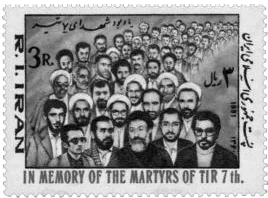
A powerful explosion in Tehran killed 73 officials of the Islamic Republican Party, including the party’s leader. The bombing struck at the heart of Iran’s post-revolutionary government.
The attack occurred during a party meeting and devastated the ruling political organization. The incident highlighted the violent internal struggles within Iran’s new Islamic republic.
Transportation and Infrastructure on June 28
1904 – SS Norge Disaster Claims 635 Lives
The passenger ship SS Norge ran aground on Hasselwood Rock in the North Atlantic Ocean. More than 635 people perished in one of the deadliest maritime disasters in history.
The tragedy occurred northwest of Ireland during the ship’s voyage from Copenhagen to New York. Poor weather conditions and navigation errors contributed to the devastating loss of life.
1982 – Aeroflot Flight 8641 Crashes

Aeroflot Flight 8641 crashed in Mazyr, Belarus, killing all 132 people aboard the aircraft. The disaster remains one of the deadliest aviation accidents in Soviet history.
The Tupolev Tu-154 aircraft encountered severe weather conditions during its approach to the airport. Investigation revealed multiple factors contributed to the tragic crash.
2016 – Istanbul Airport Terror Attack

Terrorists attacked Istanbul’s Atatürk Airport, killing 42 people and injuring over 230 others. The coordinated assault targeted one of Europe’s busiest international airports.
Three suicide bombers struck the airport’s international terminal during the evening rush hour. The attack highlighted the vulnerability of transportation hubs to terrorist operations.
Sports and Recreation on June 28
1948 – Dick Turpin Becomes Boxing Champion
Boxer Dick Turpin defeated Vince Hawkins at Villa Park in Birmingham to become Britain’s first black boxing champion. The victory marked a historic milestone in British sports history.
Turpin’s triumph broke significant racial barriers in professional boxing during the post-war era. His achievement paved the way for future generations of minority athletes in Britain.
1973 – Northern Ireland Assembly Elections
Elections were held for the Northern Ireland Assembly, leading to the first power-sharing arrangement between unionists and nationalists. The vote represented a significant attempt at political reconciliation.
The elections produced a coalition government that included both Protestant and Catholic representatives. This groundbreaking arrangement offered hope for peaceful resolution of the Northern Ireland conflict.
Notable Births on June 28
1926 – Mel Brooks Born

Comedy legend Mel Brooks entered the world, destined to become one of America’s greatest satirists and filmmakers. His unique brand of humor would revolutionize American entertainment.
Brooks would later create timeless comedies like “Blazing Saddles” and “Young Frankenstein.” His work earned him EGOT status, joining the exclusive club of Emmy, Grammy, Oscar, and Tony winners.
1971 – Elon Musk Born

South African-born entrepreneur Elon Musk was born, future revolutionary in multiple industries from electric vehicles to space exploration. His ambitious vision would reshape modern technology.
Musk would later found and lead companies like Tesla, SpaceX, and Neuralink. His innovations in sustainable energy and space travel have positioned him as one of the most influential figures of the 21st century.
1948 – Kathy Bates Born

Academy Award-winning actress Kathy Bates was born, destined to become one of Hollywood’s most respected performers. Her powerful dramatic range would earn critical acclaim across multiple decades.
Bates would later win an Oscar for her chilling performance in “Misery.” Her versatility in both film and television has made her one of the most sought-after character actresses in entertainment.
1966 – John Cusack Born

American actor John Cusack was born, future star of numerous beloved romantic comedies and dramas. His everyman appeal would make him a defining actor of Generation X cinema.
Cusack would later star in classics like “Say Anything” and “High Fidelity.” His ability to portray vulnerable, intelligent characters resonated with audiences throughout the 1980s and 1990s.
1902 – Richard Rodgers Born
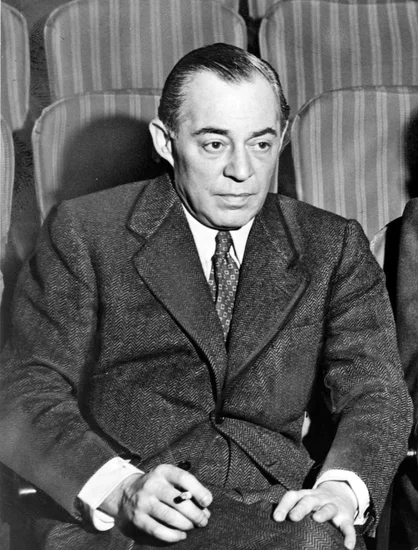
Legendary composer Richard Rodgers was born, destined to revolutionize American musical theater. His melodic genius would help define the golden age of Broadway.
Rodgers would later collaborate with Oscar Hammerstein II to create masterpieces like “Oklahoma!” and “The Sound of Music.” His contributions to musical theater earned him multiple Tony Awards and a lasting legacy.
1954 – Muhammad Yunus Born

Nobel Prize-winning economist Muhammad Yunus was born in Bangladesh, future pioneer of microfinance and social entrepreneurship. His innovative approach would lift millions from poverty.
Yunus would later establish the Grameen Bank, providing small loans to the world’s poorest people. His work in microfinance earned him the Nobel Peace Prize in 2006.
1991 – Kevin De Bruyne Born

Belgian footballer Kevin De Bruyne was born, destined to become one of the world’s most skilled midfielders. His vision and passing ability would revolutionize modern football.
De Bruyne would later star for Manchester City and the Belgian national team. His creative playmaking and leadership have established him as one of the premier players of his generation.
Notable Deaths on June 28
1914 – Franz Ferdinand Dies
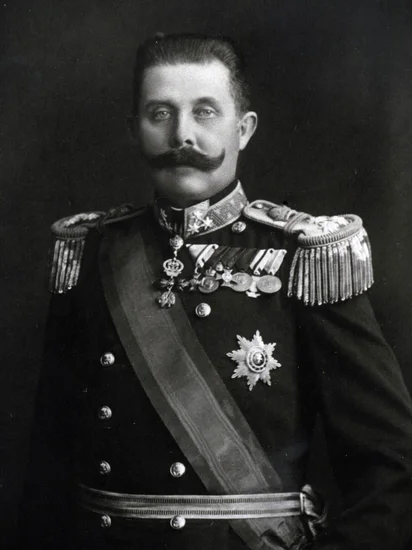
Archduke Franz Ferdinand of Austria died in Sarajevo, his assassination triggering the chain of events that led to World War I. The heir to the Austro-Hungarian throne was just 50 years old.
His death alongside his wife Sophie marked the end of potential reforms within the empire. The assassination by Gavrilo Princip changed the course of world history forever.
1975 – Rod Serling Dies
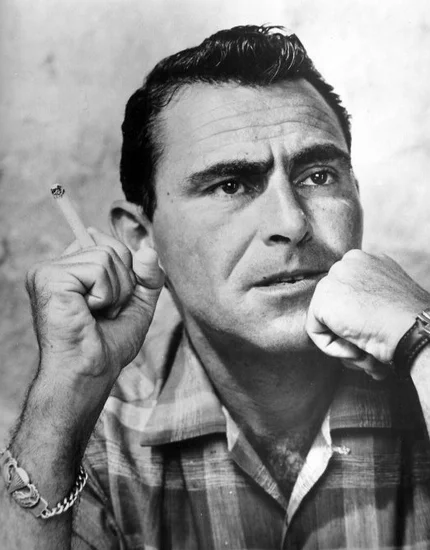
Television pioneer Rod Serling died at age 50, leaving behind a legacy of groundbreaking science fiction storytelling. His creative vision had transformed television into a medium for serious social commentary.
Serling’s masterpiece “The Twilight Zone” explored profound themes of humanity and morality. His work demonstrated television’s potential as an art form capable of rivaling literature and cinema.
1981 – Terry Fox Dies

Canadian cancer activist Terry Fox died at age 22, his Marathon of Hope having inspired millions worldwide. Despite losing his leg to cancer, he had attempted to run across Canada to raise awareness.
Fox’s courageous journey captured the world’s attention and raised unprecedented funds for cancer research. His legacy continues through the annual Terry Fox Run, held in countries across the globe.
1992 – Mikhail Tal Dies

Chess grandmaster Mikhail Tal died at age 55, ending the career of one of the most brilliant tactical players in chess history. The “Magician from Riga” had revolutionized attacking chess.
Tal’s sacrificial style and intuitive play made him the youngest world champion at age 23. His games remain studies in creative brilliance and tactical complexity.
2009 – Billy Mays Dies

Television personality Billy Mays died at age 50, his energetic product demonstrations having made him a household name. His passionate sales pitches had revolutionized television marketing.
Mays’ enthusiastic delivery style became iconic in American advertising culture. His sudden death shocked fans who had come to associate his voice with countless household products.
2016 – Pat Summitt Dies

Legendary basketball coach Pat Summitt died at age 64, her 1,098 career victories standing as the most in NCAA basketball history. Her leadership had transformed women’s college basketball.
Summitt’s Tennessee Lady Volunteers won eight national championships under her guidance. Her influence extended far beyond basketball, as she became a powerful advocate for women’s sports.
Holidays and Observances on June 28
International LGBTQ Pride Day

International LGBTQ Pride Day commemorates the anniversary of the Stonewall riots that began on this date in 1969. The observance celebrates the progress made in LGBTQ rights and recognition.
Pride celebrations worldwide honor the courage of those who fought for equality and visibility. The day serves as both a celebration of identity and a reminder of ongoing struggles for equal rights.
Constitution Day in Ukraine

Ukraine observes Constitution Day on June 28, commemorating the adoption of the current constitution in 1996. The holiday celebrates the establishment of democratic principles and rule of law.
The constitution established Ukraine as a sovereign, independent, and democratic state. Constitution Day represents the country’s commitment to democratic governance and human rights.
Vidovdan in Serbia

Serbian Orthodox communities observe Vidovdan, honoring St. Vitus and commemorating significant events in Serbian history. The day holds special meaning in Serbian cultural and religious tradition.
Vidovdan marks the anniversary of the Battle of Kosovo in 1389 and other pivotal moments in Serbian history. The observance combines religious devotion with national remembrance and cultural identity.
Poznań Remembrance Day in Poland
Poland observes Poznań Remembrance Day to honor the workers who initiated the 1956 protests against communist rule. The commemoration celebrates the courage of those who stood up for freedom and democracy.
The day remembers the sacrifice of workers who died during the protests and their contribution to Poland’s eventual liberation. The observance serves as a reminder of the importance of defending democratic values.
